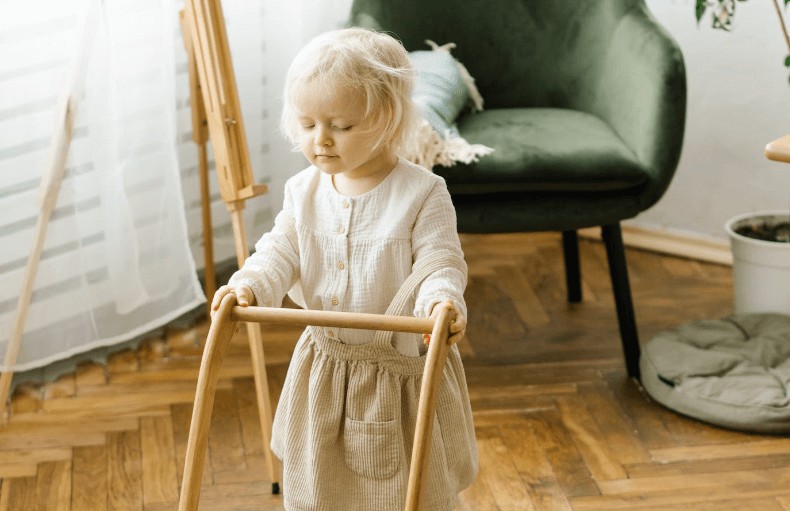
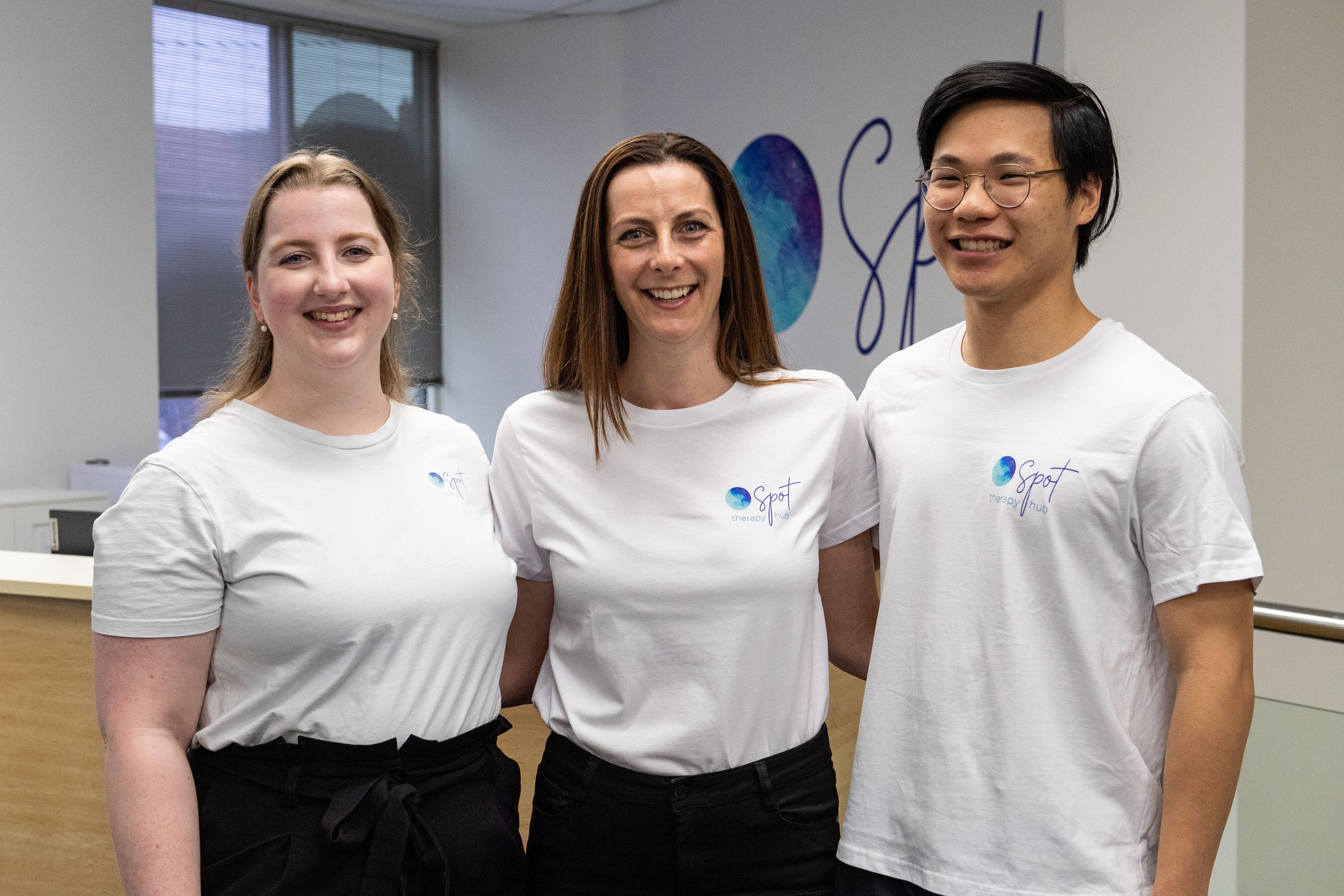
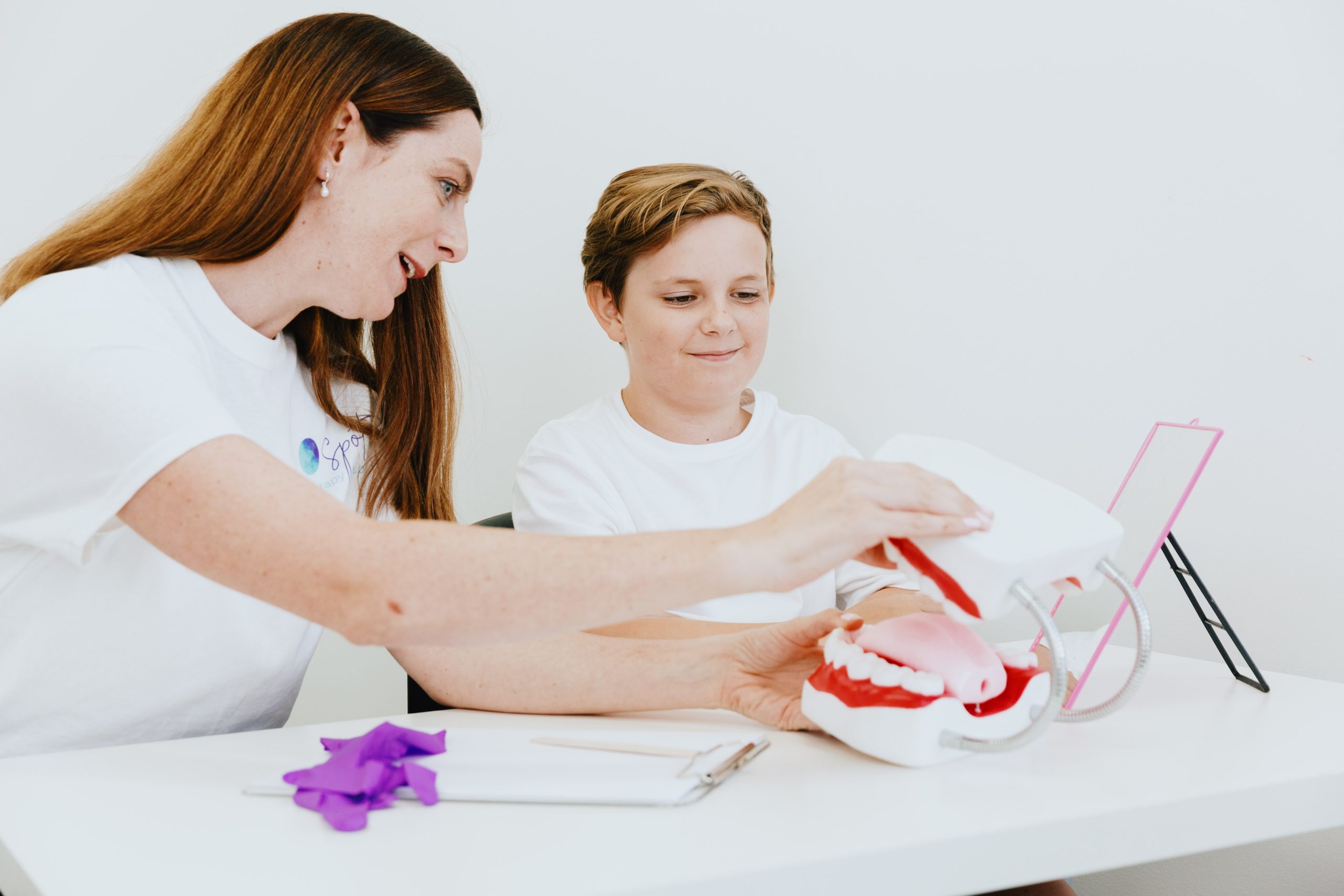
We hear about Gross motor skills all the time, but what exactly does it mean?
Gross motor skills encompass our day-to-day movements, including standing, crawling, walking, running, jumping, climbing, sitting upright, handling balls, cycling, engaging in sports, and various activities that require or involve the use of substantial muscle groups. These motor movements call upon our entire body, core stabiliser muscles, and hand-eye coordination skills.
Beyond enabling us to partake in the mentioned activities and making them more meaningful, gross motor skills are fundamental for mastering basic activities of daily living and self-care. Even seemingly routine actions, such as sitting on the toilet or dressing oneself, encompass complex tasks that demand balance, core strength, and coordination. Simple activities like eating need core strength, coordination, head control, and balance. Even something as seemingly stationary as doing homework for extended periods requires trunk control, core strength, and arm-hand-eye coordination.
Diminished gross motor skills can impact a child’s ability to engage in self-care tasks, endure a full school day, maintain posture for tabletop activities, thus limiting opportunities to participate in tasks and activities that foster fine motor skills. It can also affect school requirements, playing (involving climbing, running, and walking), and ball skills (such as catching and throwing). In turn, this can dent a child’s confidence, motivation, and self-esteem.
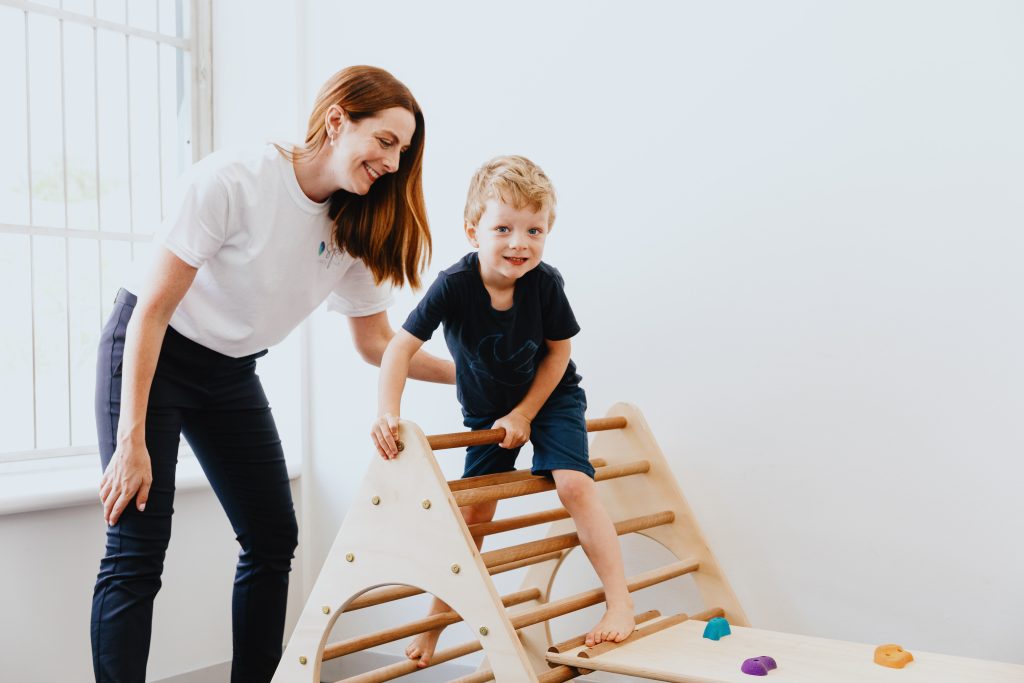
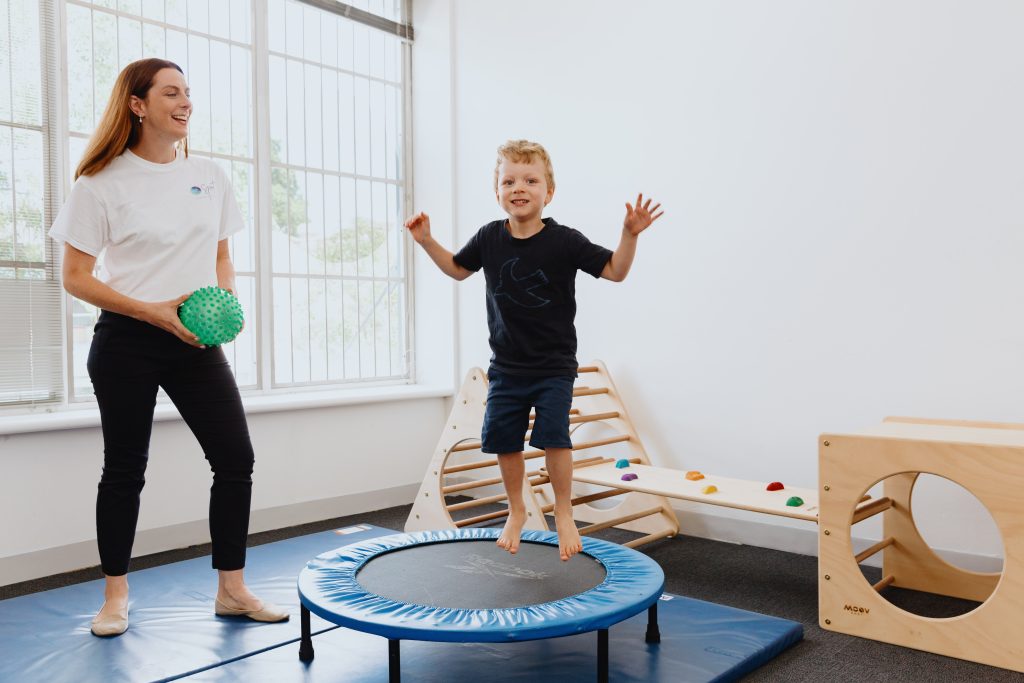
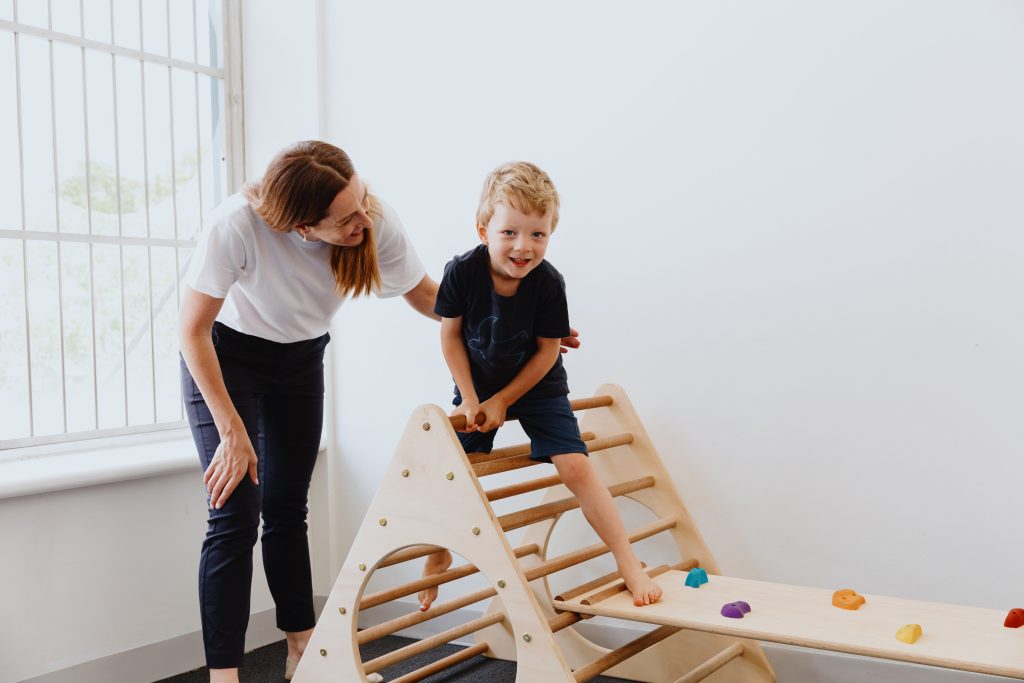
Should your child exhibit signs of clumsiness, have trouble with balance, appear uncoordinated, display physical weakness, or experience delayed reaction times, they may be grappling with gross motor difficulties. Additionally, avoidance or a general disinterest in physical activities, coupled with ‘silly’ behaviour, impulsiveness, or rushing through tasks, may also indicate challenges in this domain.
Children facing gross motor difficulties may have an underlying condition called developmental coordination disorder (DCD), commonly referred to as Dyspraxia. DCD is a lifelong condition that impacts motor planning (the skill of memorising and executing the steps required for a movement), gross motor skills, and fine motor skills. Children with DCD are frequently labelled as “clumsy” or “awkward.” Early intervention can mitigate the emotional, physical, and social struggles associated with DCD.
Should you notice your child grappling with gross motor skill difficulties, there are engaging and constructive ways to encourage movement and development:
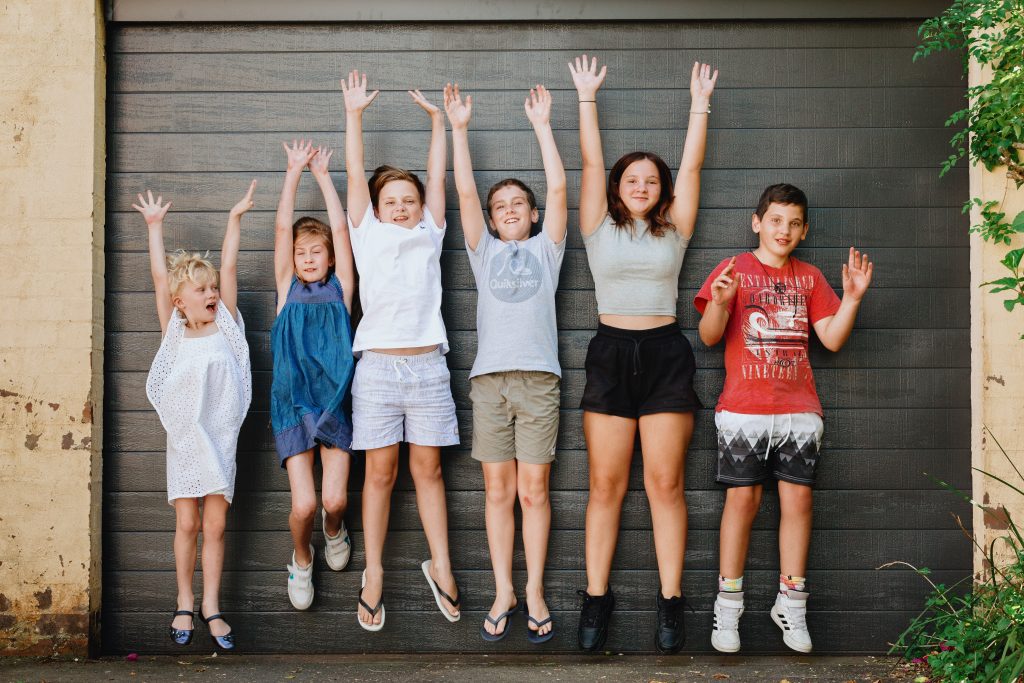
If you observe your child facing challenges with gross motor skills, you may want to explore further by consulting an occupational therapist. These professionals will investigate a range of symptoms, including low muscle tone, mobility, balance, coordination skills, and potential delays in fine motor skills.